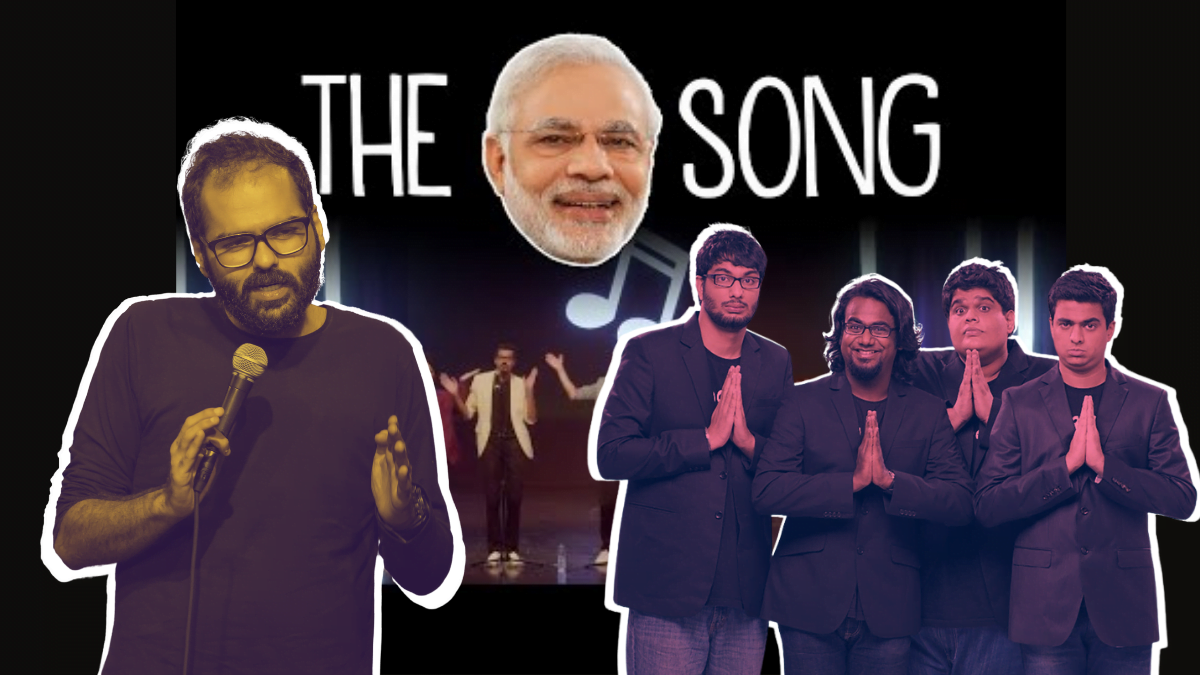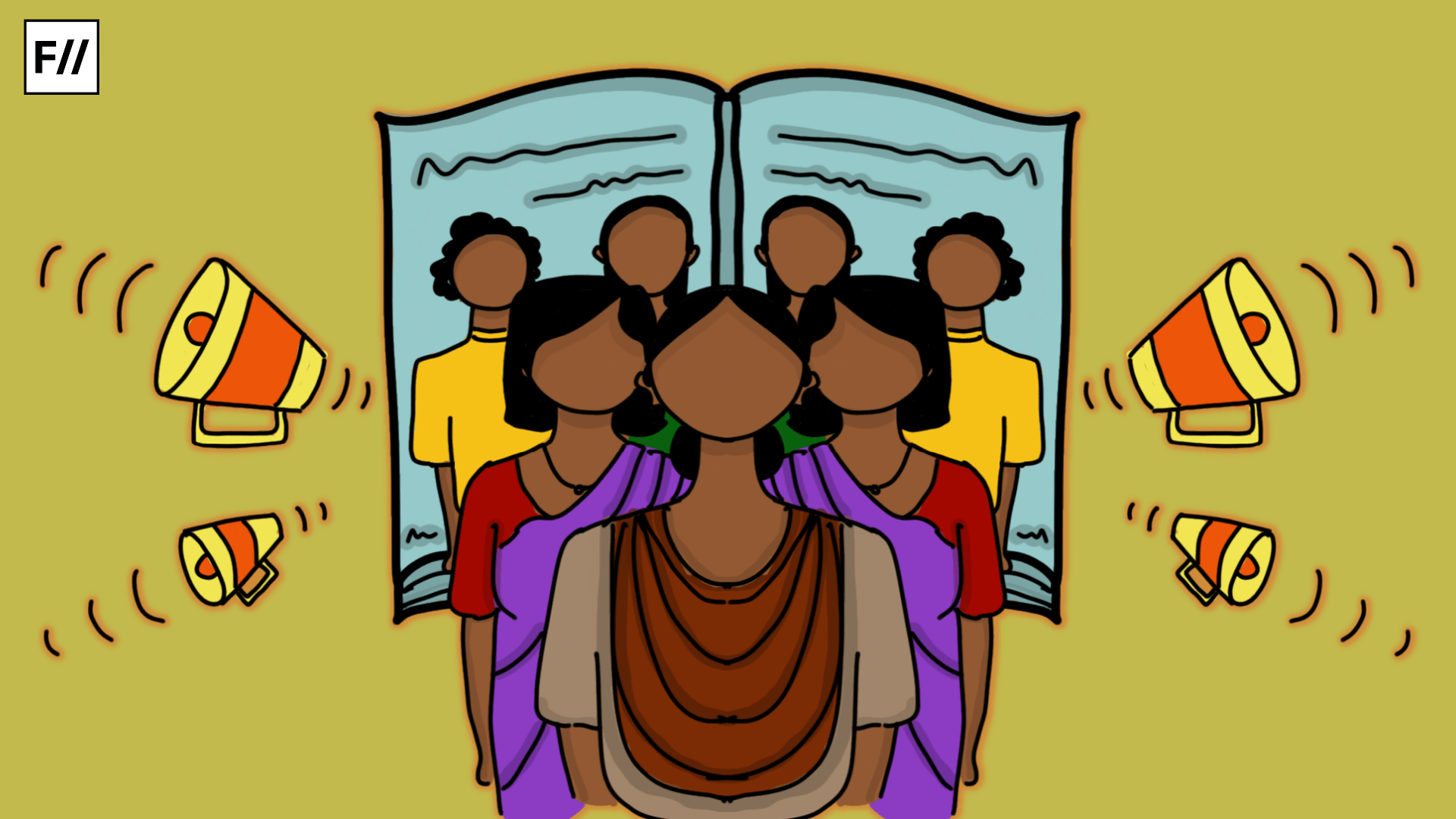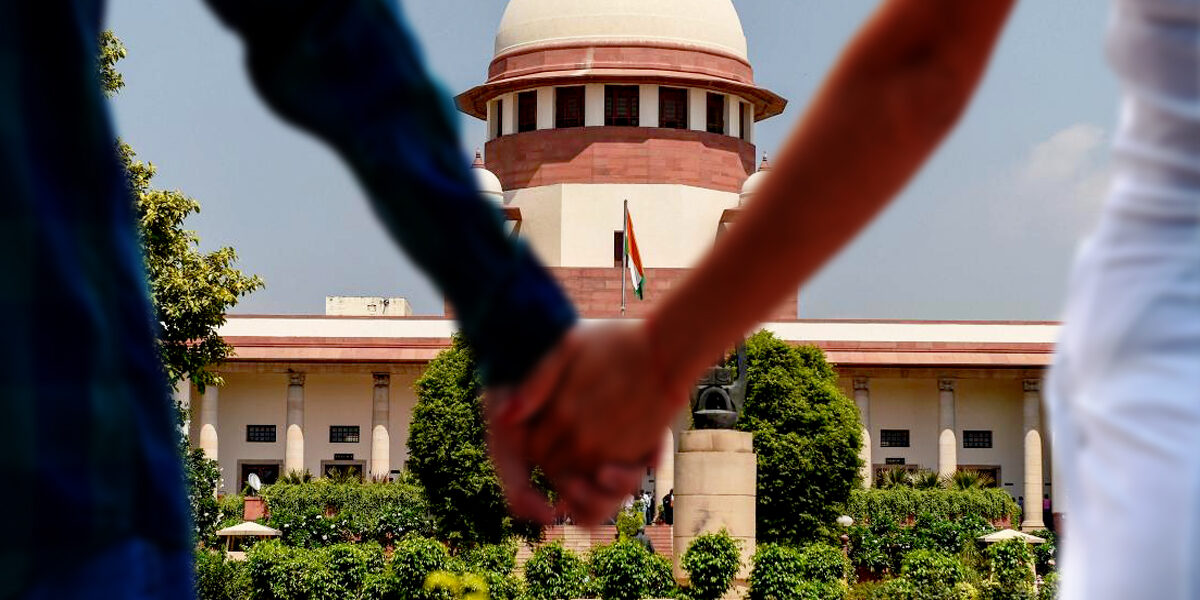Humour is essential to the average Indian. In a country like ours, where cow urine is recommended to fight a pandemic and news anchors create conspiracy theories; it is hard to tell if we are living in an Orwell novel or not. The state is sad but hilarious, exactly like the humour of the young Indian who every now and then cracks a self-deprecating joke on unemployment, dust piled certificates and hatred for “Sharma ji ka beta”. Some of these problems are unique to millennial life while others get bestowed as cultural heritage.
Indian society has always been ridden with conflicts and tragedies, and we have always managed to make a joke out of it. Times have changed and so have some of our problems, but a dose of comedy is well appreciated. There was once a time when humour was limited to cinema. In the early days of Bollywood, there were films dedicated entirely to the genre of comedy such as ‘Andaaz Apna Apna’, ‘Angoor‘ and ‘Mr. India‘. The success of these films trickled down to television leading to deeper exploration of the genre, in a way more relatable and intimate to the common man. Shows like ‘Sarabhai Vs Sarabhai’, ‘Office Office’ and ‘Khichdi‘ were full of sarcasm and social commentary done through a common man’s ordeals.
With the success of soap operas, television saw a shift from full-fledged sitcoms to stand-up shows. ‘The Great Indian Laughter Challenge’, ‘Movers and Shakers’ and ‘Comedy Circus’ are some of the milestone stand-up shows that have given us stars like Raju Srivastava, Sudesh Lehri, Kapil Sharma and Bharti Singh, the latter earning around lakhs for a genre that was not taken seriously until before.
The state is sad but hilarious, exactly like the humour of the young Indian who every now and then cracks a self-deprecating joke on unemployment, dust piled certificates and hatred for “Sharma ji ka beta”. Some of these problems are unique to millennial life while others get bestowed as cultural heritage.
However, stand-up comedy in India has now expanded itself beyond ‘The Kapil Sharma Show’. With the popularity of newer forms of media such as YouTube and web platforms like Amazon Prime and Netflix, it has managed to capture the millennial audience who is too busy to sit in front of a TV and too aware to laugh at misogynistic jokes. The new comedy scene is full of young comedians critiquing staunchest of Indian traditions. Be it the ridiculousness of educational institutions or family expectations, stand-up comedy today is becoming real than ever.
In a time, when politicians are doing the comedian’s job, it is only right that the latter talk politics. Thus, the recent wave of news comedy or political satire has been sweeping the comedy scene of India. Borrowing from American shows like ‘The Daily Show’ and ‘Patriot Act with Hasan Minhaj‘, there has been a surge in politically aware comedy.
‘Tragedy Mein Comedy Hai’
It would be unfair to talk about news comedy and not mention All India Bakchod(AIB) company. One of the firsts to invest wholly in comedy, it soon gained favour of millennial India which was waiting for a voice as bold as AIB. With ‘On Air with AIB’ and feminist videos like ‘Rape: It’s Your Fault’, AIB managed to woo a large number of women followers who felt seen for the first time. ‘On Air with AIB’, a web television satire show was based on a format similar to Last Week Tonight with John Oliver. It picked a current topic and discussed it through a 22 minute episode. The episodes were informative with mild punches on the government here and there. This was a relatively unexplored format and a difficult one, especially under the Modi-led government which is known for quashing any anti-government voices.
Cut to the present, AIB is now dead and forgotten. A series of #MeToo accusations and revelation of its token feminism was enough to unveil the real politics of its “woke” comedy. From limiting women actors to feminist sketches to men dominating scriptwriting and celebrity interviews, AIB soon saw itself struggling to keep up the act. Its fall was a lesson to all of us as we learnt that a bit of feminism sprinkled with liberal politics is all that a company needs to establish itself in the market as “politically aware” content creators who can be taken seriously.
Although AIB failed to maintain itself in the market, it did become a reference point for a lot of young comedians who wished to explore this genre. Comedians such as Kunal Kamra, Varun Grover and Sanjay Rajoura have been gaining massive popularity due to their content centered directly around politics.
Kamra made headlines earlier this year, when he posted a video of him “confronting” Arnab Goswami on a flight, citing Rohith Vemula’s death as the reason why he decided to accost Goswami. While the video boosted his fame and won him cheers from liberals all over India, there were also sections who were conflicted about this stunt. It was seen improper of Kamra to flout safety norms and civility to attack a journalist who didn’t owe him anything to begin with. Goswami is widely hated for his journalism and rightly so, but it is also a fact that bandwagon hate does not warrant anyone to use it to their advantage to gain woke points.
Also read: Feminist Memes – Subverting Patriarchy With Humour!
If you are a fan of Kamra you would know that he has his favourites: Modi, Arnab Goswami and Ambani. Most of his jokes centre around hyper nationalism in India and #MandirWahiBanega. There are jokes on right wing mentality and their blind worship of Prime Minister Modi. Kamra’s repetitive attacks on these biggies blew him to immense fame, crowning him as the fearless voice of young India.
However, despite his anti-esatablishment comedy and podcast ‘Shut Up Ya Kunal’ where he calls guests for discussions on governance and politics, Kamra refuses to call himself a journalist. He doesn’t stand with any one party nor does he strongly identify with any one ideology. It is almost like he plays it safe. Kamra’s success shows that while jokes on Modi and Bharat Mata will surely get you death threats and show cancellations but they will also make you popular among the frustrated youth and solidify your brand as a dissenting, risk-taking comedian.
It is almost like he plays it safe. Kamra’s success shows that while jokes on Modi and Bharat Mata will surely get you death threats and show cancellations but they will also make you popular among the frustrated youth and solidify your brand as a dissenting, risk-taking comedian.
Kamra is doing well despite his edgy political humour. So is the mandir, whose jokes shot him to popularity. It is strange when you realise that people like Kamra are able to escape the terror experienced by student activists, political prisoners and journalists for believing in the same thing except one makes money by making jokes out of it, while the other keeps quiet in order to live safely.
It is remarkable that the stand-up scene in India is changing. Comedians are willing to critique and question authorities. However, in order for political satire to grow, it is important that we go beyond personality driven amusement and ideas of dissent conforming to those of the urban elite. The Indian stand-up scene still does not have many women, non-binary, Trans or Queer comedians; forget those allowed to discuss politics. Even more important is the inclusion of Dalit voices and marginalised experiences that challenge the status quo and make the English speaking, upper class, upper caste audience uncomfortable. These comedians have an immense following and youth engagement which requires them to move beyond their comfort zone and talk about horrors in our country that might not get as many laughs.
What is the point of satire if not push people to question? Not only those in power but themselves too because while it is easy to make jokes on others, it is far more difficult to admit that there is more than one way to damage a country and the culprit does not always have to be someone else.
Also read: Humour, Female Friends, And Diversity: ‘Someone Great’ Is RomCom Done Right
References
About the author(s)
20 year old Journalism student who mostly writes about mental health and excessively relies on art and music to understand the world around them.




